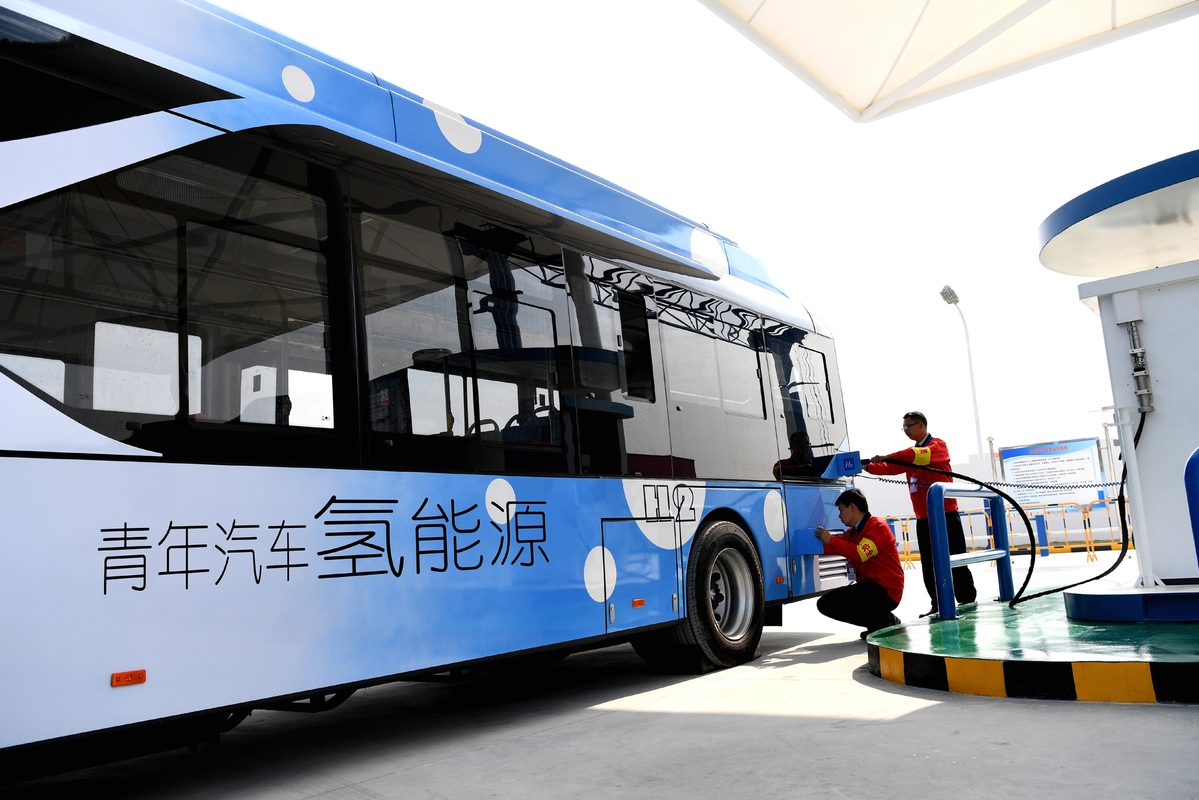Hydrogen on track to drive China's development
By Wang Keju | China Daily | Updated: 2018-06-05 07:18

Experts say the gas could become a major source of clean, environmentally safe fuel, as Wang Keju reports.
The concept of the hydrogen energy economy has been around since the 1970s, thanks to its status as a clean source of fuel and energy that does not release carbon dioxide at the point of use. As such, many scientists believed that hydrogen power could play an important role in the global transition to a clean, low-carbon energy system.
However, despite the early optimism, the concept has remained a Utopian dream, stuck in a chicken-and-egg dilemma, with demand for hydrogen hampered by a lack of required infrastructure and vice versa.
Now, though, things may be about to change.
The 2015 UN Climate Change Conference saw 195 countries sign the Paris Agreement, an initiative designed to restrict global warming this century to "well below 2 degrees Celsius above preindustrial levels, and to pursue efforts to limit the temperature increase even further to 1.5 degrees Celsius".
The target is highly ambitious, according to some observers. "The agreement requires the world to limit cumulative energy-related emissions of carbon dioxide to less than 900 Gt (gigatons) by 2100 - an amount the world will exceed before 2050 if it continues on its current path. Achieving such deep decarbonization will require a radical transformation of the energy system," said Zhou Dadi, a senior researcher at the China Energy Research Society.
According to a 2017 road map produced by the Hydrogen Council, a grouping of 39 energy-related companies, the gas could account for almost one-fifth of the energy consumed globally by 2050, reducing annual emissions of carbon dioxide by about 6 Gt and contribute about 20 percent of the additional reduction required to limit global warming to 2 C.
Significant progress
In recent years, hydrogen technologies and products, especially hydrogen fuel cell vehicles - an important technology in decarbonized transportation systems - have made significant progress in many countries and regions such as Japan, South Korea, the United States and Europe.
At the same time, China has been developing hydrogen fuel cell vehicles to make the nation's automobile industry cleaner and more efficient.
Since 2003, China has worked with the UN Development Program and Global Environment Facility to establish five pilot demonstration zones, including Beijing, Shanghai and Zhengzhou, Henan province, to promote the development and commercialization of hydrogen fuel cell vehicles, according to Zhang Weidong, a project manager at the UNDP.
"Three fuel cell buses and 20 fuel cell cars were used at the 2008 Beijing Olympics, while 196 fuel cell vehicles were demonstrated during the 2010 Shanghai Expo," he said.
























